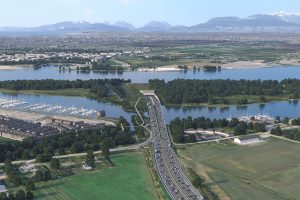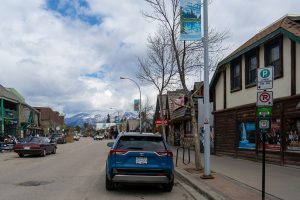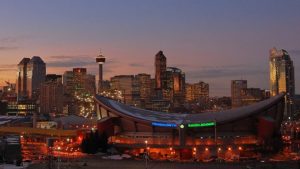I wrote recently about three construction proposals that caught my eye because of their sheer audacity. There’s a fourth.
Construction Corner | Korky Koroluk
I wrote recently about three construction proposals that caught my eye because of their sheer audacity. There's a fourth.
While the three I wrote about originated in China, this one was born in the United States.
It’s a proposal to re-pave American roads with glass-covered solar panels that are strong enough to drive on, while generating enough power to light the road, melt ice and snow, and send surplus energy to the power grid.
Supporters have jumped on the bandwagon, with some among them suggesting that if every paved surface in the U.S. were to be re-paved with the panels, they would produce more power than the country presently uses.
The headline on one article gushed “Solar roads promising to solve humanity’s energy problems.”
Well, maybe.
Among the problems facing the technology is that U.S. politics is so polarized that government can achieve little.
It’s tough to get funding for an idea when budget restraint means that much worthwhile work is shelved.
And, it’s almost impossible to get approval for any project that might impinge upon the profits of oil and coal industries that essentially control the Republican Party.
The thing is, solar highways would open the doors to other innovative technologies, including charging pads for electric vehicles (EVs) located at places like highway rest stops.
You could pull onto a charging pad, go inside for a coffee and sandwich, hit the washroom, and by then your car would be recharged and waiting for you.
That would create more demand for electric cars, which would mean speedier development of the technologies they employ.
The idea for solar roadways is the brainchild of electrical engineer Scott Brusaw, who has been working on it for much of the last decade. The system would consist of interlocking, tempered glass hexagonal panels, which have been tested for impact, load and traction.
Embedded in these panels are photovoltaic panels to harvest the power of the sun, making use of the wide expanses of roads and parking lots, many of which can sit empty for long periods of time.
Homeowners could use the panels to pave their driveways, hooking them up to the house energy system.
Businesses could pave their parking lots and tie them into their building’s energy system.
Immediately adjacent to the solar roadway would be a covered trench called a cable corridor.
That’s where the electrical works would be. In the same trench, but separate, would be space to store and treat stormwater. Each panel would contain an embedded microprocessor so that each panel would be in constant communication with the panels around it.
If one panel fails, the others would let the road operator know so the location of the “dead” panel can be pinpointed and a repair crew sent out.
In the last eight years, Brusaw has received two rounds of development funding from the U.S. Federal Highway Administration. But, more development money is needed — tough to obtain in today’s poisonous political climate.
Brusaw decided to turn to the people.
On April 21, he launched a crowdfunding campaign on Indiegogo, in the hope of raising US$1 million.
It will run until June 20.
The idea seems to have rung a bell with the American public. When I checked at the end of May, $1.83 million had been reached, with 20 days to go. Brusaw has published a lot of information about his plan on the Indiegogo website. More about the idea is at www.solarroadways.com
You’ll find a large FAQ section, plus renderings of what solar roads would look like, as well as videos of some of Brusaw’s presentations. I’ve already booked a reminder to check back on June 20, so I can report how much money his campaign finally reached.
Korky Koroluk is a regular freelance contributor to the Journal of Commerce. Send comments or questions to editor@journalofcommerce.com.











Recent Comments
comments for this post are closed